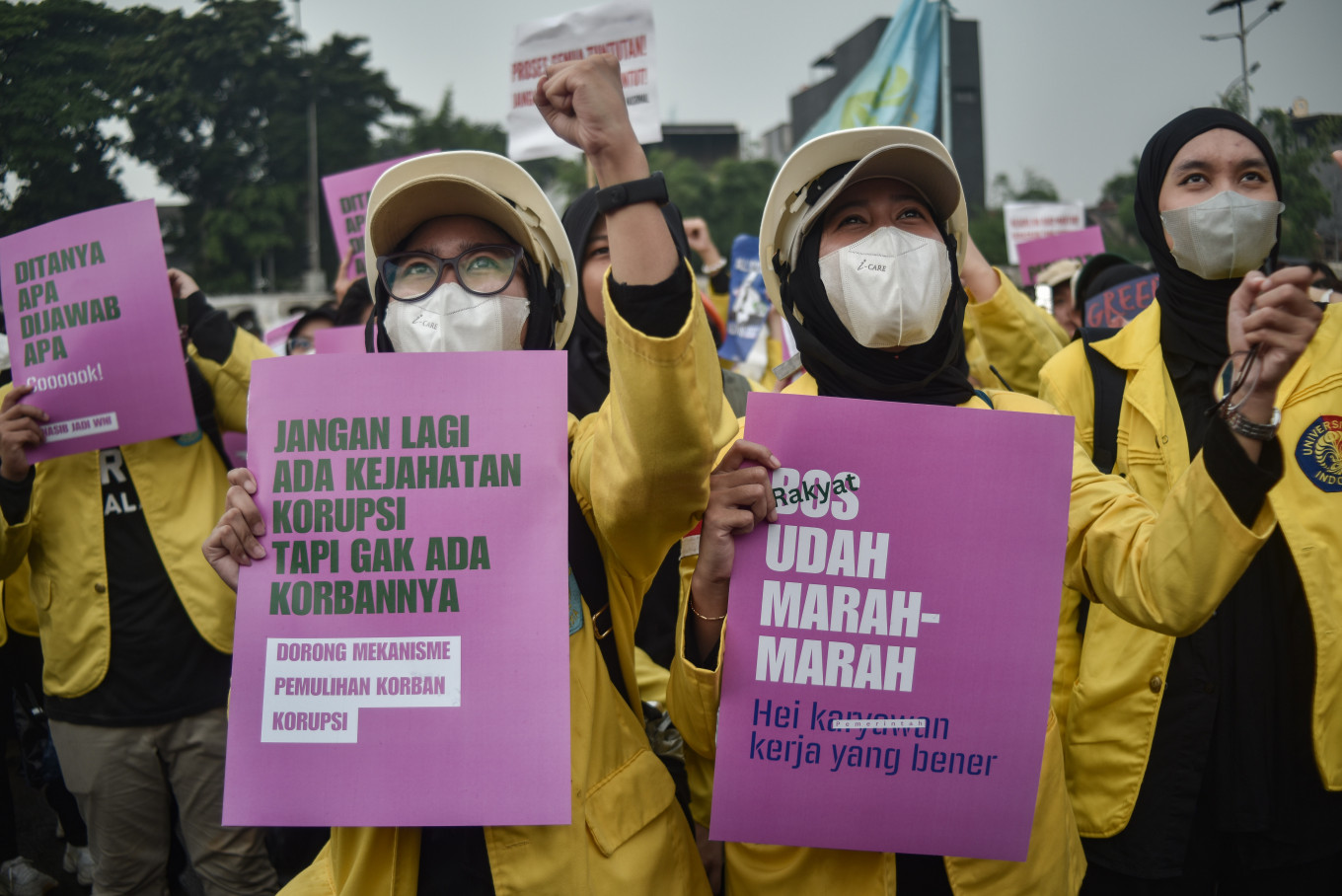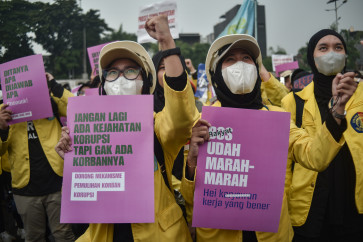Popular Reads
Top Results
Can't find what you're looking for?
View all search resultsPopular Reads
Top Results
Can't find what you're looking for?
View all search resultsPolice reform hinges on the President’s will to change
Still, if President Prabowo acts decisively, ensuring the presidential committee serves as the principal reform actor, the collaboration could become a true engine of change
Change text size
Gift Premium Articles
to Anyone
 University students hold posters of demands during a protest on Sept. 9, 2025, in front of the House of Representatives complex in Central Jakarta. The demonstration, dubbed Rakyat Tagih Janji (the people call in promises), was held to push for the fulfillment of public demands known as the “17+8”. (Antara/Fakhri Hermansyah)
University students hold posters of demands during a protest on Sept. 9, 2025, in front of the House of Representatives complex in Central Jakarta. The demonstration, dubbed Rakyat Tagih Janji (the people call in promises), was held to push for the fulfillment of public demands known as the “17+8”. (Antara/Fakhri Hermansyah)
P
resident Prabowo Subianto’s decision to establish the Police Reform Committee deserves recognition, as the transformation of the National Police has, for years, either stagnated or reached a dead end. Indonesia has long missed crucial windows to pursue genuine institutional, instrumental and cultural reform within its law enforcement apparatus.
Consider the litany of scandals. The Ferdy Sambo and Teddy Minahasa cases in 2022 exposed not only systemic corruption but also the rot of internal impunity. That same year, the Kanjuruhan Stadium tragedy in Malang, East Java, laid bare the deadly consequences of unchecked police brutality.
The pattern continues: A police officer shot his superior in West Sumatra amid an alleged illegal mining protection racket; an officer fatally shot a high school student accused of joining a brawl in Central Java; and a villager died from a Mobile Brigade (Brimob) bullet in Bangka Belitung after being accused of stealing palm fruit.
These incidents reveal a grim truth that Indonesia’s police reform agenda has been more rhetorical than substantive. Each scandal briefly revives public outrage, only to fade into a cycle of half-hearted investigations and institutional denial. Without decisive and consistent political will from the President, the reform risks becoming yet another bureaucratic ritual, loud in announcement, but hollow in execution.
The issue resurfaced after a wave of public anger over lawmakers’ rising housing allowances, shifting to the police after the death of an online motorcycle transportation driver during a protest on Aug. 28. The current reform agenda, therefore, appears more reactive than the product of genuine intent. As The Jakarta Post put it in its editorial on Oct. 2, without the tragedy and the subsequent mass demonstrations, including the 17+8 People’s Demands movement, the issue might never have reemerged.
The Police Reform Committee initiated by President Prabowo will be the true measure of his leadership. Its success depends on one crucial condition, namely firm and consistent political will. Empowered directly by the President, the reform team must act with moral clarity to confront the roots of institutional decay, not merely offer cosmetic adjustments. Only then can reform restore justice, accountability and public trust.
The committee must focus on three core areas: structural, instrumental and cultural transformation.


















